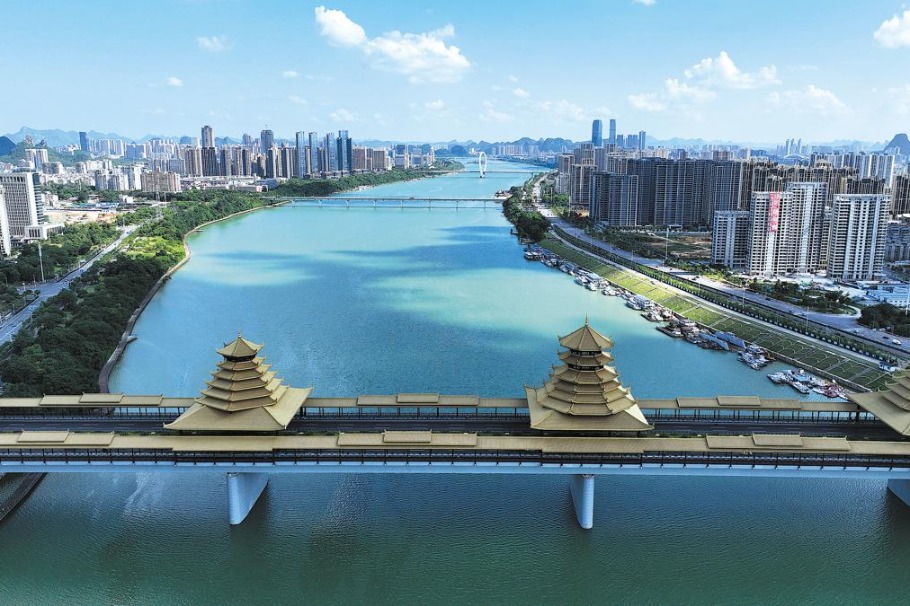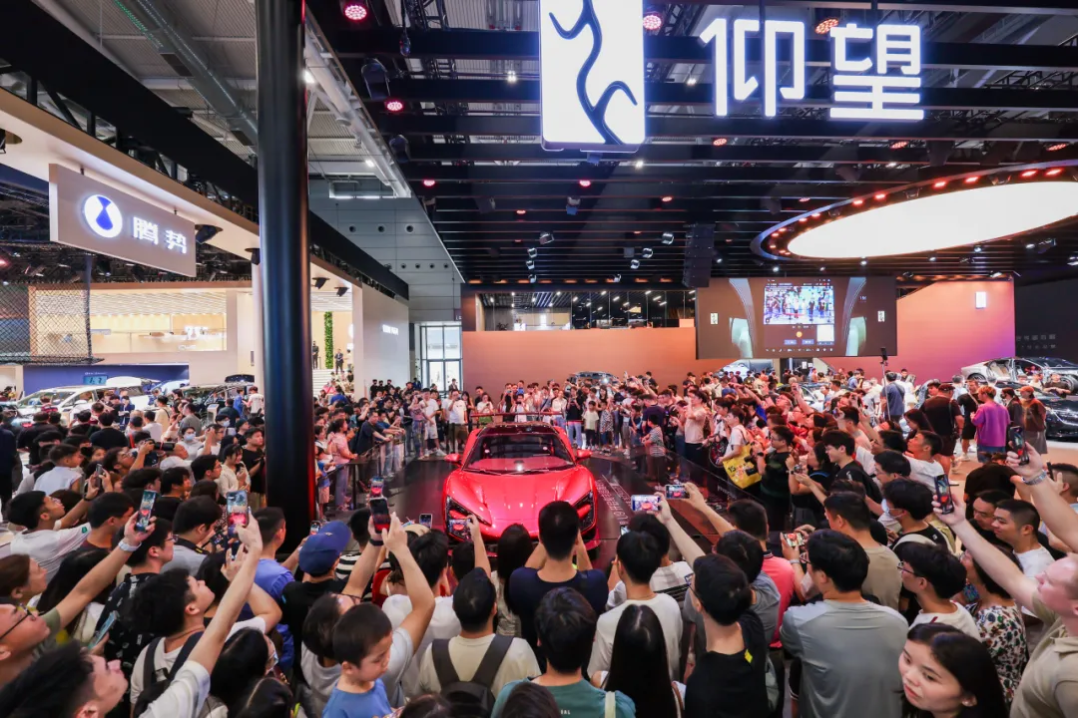US ports oppose tariff on China-made cranes
Additional costs lead to strained supply chains and higher prices, insiders say

Ports in the United States are pushing back against the recently proposed 25 percent tariff on Chinese-made ship-to-shore cranes, or STS cranes, warning that the increased costs would have a "substantial negative" impact on the economy.
In a series of letters to the US Trade Representative, port authorities, terminal operators and industry groups across the country have called for the decision to be reversed or delayed, arguing that the tariffs will harm port efficiency, disrupt supply chains and ultimately raise prices for consumers.
The tariff, which was announced by the White House in May as part of a broader trade initiative targeting Chinese goods, is set to take effect on Aug 1. Despite mounting opposition, President Joe Biden's administration has defended the move as necessary to protect US manufacturers and rebuild domestic industries.
Critics argue, however, that the tariff will do little to achieve those goals, as there are currently no US manufacturers of STS cranes and the global market is dominated by Chinese companies.
Currently, at least seven ports in the US have 35 cranes on order from Chinese manufacturers, with an average cost of $15 million per crane. According to the American Association of Port Authorities, or AAPA, the ports now face at least $131 million in new unexpected costs if the tariff is implemented.
"The tariff, if imposed, will not meet its stated objectives," AAPA President and CEO Cary Davis wrote in a letter to US Trade Representative Katherine Tai on June 28. "Instead, it will only result in negative outcomes, including grave harm to port efficiency and capacity, strained supply chains, increased consumer prices, and a weaker US economy."
The Port of New Orleans is planning a major expansion of its container capacity. It estimated that the tariff would cost $52 million for its new Louisiana International Terminal alone.
The Port of Virginia has already signed contracts for 12 cranes from Chinese companies at a cost of $161 million and could face an additional $40 million in costs due to the tariff.
Growing demand
The AAPA also noted a recent survey suggested that at least an additional 61 cranes were expected to be ordered in the next five years to meet growing demand.
The new tariff targets STS cranes, which are used to load and unload container ships, amid claims by some officials and media reports that the cranes made by Chinese manufacturers may be vulnerable to data breaches due to remote control capabilities.
In February, Biden announced a $20 billion investment to build STS cranes in the US, citing cybersecurity concerns around Chinese-made cranes.
Shanghai Zhenhua Heavy Industries, the world's largest manufacturer of port equipment, has denied the allegations.
The US port industry has also dismissed the claims as "largely unfounded" and pointed out that multiple federal agencies are already addressing any potential security concerns.
"It's unnecessary to impose a tariff to secure US ports," the AAPA said.
Another letter
That was echoed by another letter submitted by Port Houston and jointly signed by 14 other ports and groups. "Imposing tariffs on these high cost, low tech pieces of equipment would, in fact, damage an important strategic objective of modernizing and improving US infrastructure and put the economic health of our communities and our country in jeopardy," they warned.
The opponents also highlighted the lack of viable alternatives to Chinese-made cranes. Apart from Shanghai Zhenhua Heavy Industries, Germany and Finland produce a small fraction of STS cranes, but source most of their components from China, making their products subject to the 25 percent tariff as well.
There have not been any manufacturers of STS cranes in the US for nearly four decades. Therefore, there is no timeline for when STS cranes might be available domestically, and the tariff on Chinese cranes "will do nothing to protect American manufacturers from unfair practices", the AAPA said.
Critics also noted that the tariff contradicts the Biden administration's commitment to infrastructure improvement and emission reduction. Delays in port investments, including those in zero-emission equipment, would negatively impact the domestic green economy and the industries the tariff aims to protect.
Today's Top News
- Efforts urged to apply scientific, tech advances
- Foreign trade shows steady growth in first five months
- Ningxia rises in global influence as a top wine region
- First meeting of China-US economic and trade consultation mechanism starts in London
- Equality, respect and mutual benefit key to producing positive outcomes in London: China Daily editorial
- Ocean well-being requires collective action: China Daily editorial






























